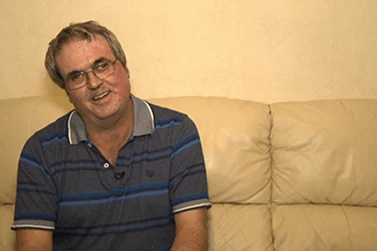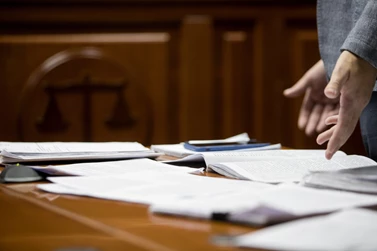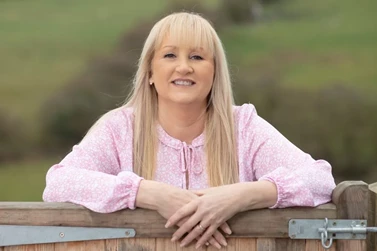Nerve Damage Compensation
Nerve damage injuries can cause a wide range of symptoms and impairments that can make even simple daily activities challenging.
If you have suffered a nerve injury in an accident or from medical negligence, you may be able to make a nerve damage compensation claim.
With a proven track record of success, our personal injury lawyers have helped thousands of people obtain compensation and support for nerve damage injuries.
Call us on 0800 0 224 224 or complete our short online enquiry form for free, no obligation legal advice about your personal injury claim.
Need legal advice?
Our lawyers are on hand to discuss your situation and talk through the process of making a claim.
Frequently asked questions about nerve damage claims
Nerve damage, also known as neuropathy, is a condition that occurs when nerves are injured or damaged, which can interfere with the transmission of messages between the brain and other parts of the body.
Nerves are responsible for carrying information to and from the brain, allowing us to feel sensations, move our muscles, and perform a wide range of bodily functions.
Illnesses and accidents can result in various types of nerve damage, each with their own distinct symptoms that require specific medical treatments. Your doctor will provide advice for the most appropriate treatment based on the type of nerve injury you have sustained.
Nerve damage resulting from an accident at work or road traffic accident typically involves head trauma or injury to the spine, torso, or limbs.
Nerve damage in the hand can be caused by occupational injuries, such as vibration white finger and carpal tunnel syndrome.
Medical negligence on the part of healthcare providers, such as surgical errors, misdiagnosis, or failure to properly monitor patients, can also cause nerve damage. For example, if compression of nerves in the spine is not quickly identified and treated, it can lead to serious consequences, such as cauda equina syndrome.
Nerve damage can result in a wide range of symptoms, which can vary depending on which nerves are damaged and where they are on the body.
Accident trauma can lead to nerve damage in various parts of the central nervous system, including the brain, spinal cord, and peripheral nerves that extend to the limbs.
Some of the symptoms of nerve damage include:
Autonomic nerve injury:
- Unable to sense chest pain (for example a heart attack or angina)
- Sweating too little (anhidrosis) or too much (hyperhidrosis)
- Dry eyes, mouth and dizziness
- Constipation and/or bladder problems
- Sexual dysfunction.
Motor nerve injury:
- Weakness or loss of muscle control or paralysis
- Involuntary twitching or tics - called fasciculation.
Sensory nerve injury:
- Burning pain or sensitivity to touch
- Numbness, or tingling sensations
- Loss of balance or coordination.
In some instances, accidents resulting in nerve injuries can cause several different types of damage simultaneously, leading to a number of symptoms. This can occur in cases of severe physical trauma, such as crush injuries that result in significant harm to the brain, spine, or limbs.
If you have been in an accident or suffered medical negligence in the past three years, and someone else is partially or entirely responsible, you may be eligible for compensation.
If you're unsure about whether you qualify for a nerve injury claim, we provide free and confidential legal advice without any obligation. Our goal is to simplify the claims process and offer you the best possible support.
Call us now on 0800 0 224 224 to speak to one of our legal experts. We'll listen to you, ask questions about your personal injury, and inform you if you meet the criteria for a nerve damage compensation claim.
Our solicitors are committed to securing you the maximum compensation possible.
The final figure will depend on the severity of your injury, its impact on your life, and any financial losses such as:
- Loss of earnings
- Medical treatment costs, such as physiotherapy
- Any future medical treatment or adaptations you may need.
Yes - the time limit is three years from the date of the accident or injury, or from the date you first became aware of the nerve injury.
There are some exceptions to this rule, such as for claims involving minors (where the three-year time limit does not start until the child turns 18) or for claims involving people who lack capacity to make their own claim.
If you do not make a claim within this period, you may not be able to pursue legal action. Therefore, if you are considering making a nerve damage compensation claim, we’d advise you to seek legal advice from one of our expert personal injury solicitors as soon as possible to ensure that you do not miss any important deadlines.
There are several stages in the nerve damage claims process, outlined below:
Contact a lawyer: It is highly recommended to seek legal advice from a lawyer who specialises in nerve damage claims. They can provide guidance on the strength of your claim, the legal process, and the potential compensation you may be entitled to.
Work with your lawyer to gather evidence: To support your nerve damage compensation claim, your lawyer will help you to gather as much evidence as possible. This may include medical records, photographs and witness statements.
Pre-action protocol: Before starting a legal action, your lawyer will send a letter of claim to the other party or their insurer, outlining the details of your claim and the compensation you are seeking. The other party will then have a certain amount of time to respond.
Negotiation and settlement: If liability is accepted, your lawyer will negotiate a settlement on your behalf. This may involve obtaining medical evidence and expert reports to support your claim and to assess the extent of your injuries.
Court proceedings: If a settlement cannot be reached, your lawyer may initiate court proceedings on your behalf. This could involve attending court hearings and presenting evidence to support your claim – however the vast majority of cases do not proceed to trial.
It is important to note that the process of making a nerve damage compensation claim can be complex, and the outcome of your claim will depend on the specific circumstances of your case. Therefore, we would recommend that you seek legal advice from a qualified personal injury lawyer.
Thompsons Solicitors has an experienced team of personal injury lawyers who can give you expert legal advice and guide you through the claims process.
The length of time it takes to make a nerve damage claim varies depending on several factors, including the complexity of the case, the severity of the injury, and whether liability is disputed. It can take several months to three years to resolve a nerve damage claim, although some cases may take longer.
It is important to note that while nerve damage claims can take some time to resolve, it is often in the best interest of the claimant to take the time necessary to build a strong case and negotiate a fair settlement. Rushing the process can lead to a lower settlement offer and can negatively impact the outcome of the case.
In order to make a successful nerve damage injury claim your lawyer will need to provide evidence that establishes liability and demonstrates the extent of your injuries and their impact on your daily life.
The following are examples of evidence that may be useful in a nerve damage compensation claim:
- Medical records: Your medical records are critical evidence in a nerve damage claim. They document the diagnosis, treatment, and prognosis of your injury. They also provide details about the impact of the injury on your life and any ongoing treatment or rehabilitation needs.
- Witness statements: If anyone witnessed your accident or the circumstances that led to your injury, their statements can provide valuable evidence in your claim. This can include co-workers, bystanders, or anyone else who saw the incident occur.
- Expert testimony: Expert witnesses can provide evidence about the cause of your nerve damage, the extent of your injuries, and the impact they have had on your life. This can include medical experts who can provide testimony about your future medical needs.
- Photographs and videos: Photographs and videos of the scene of the accident or the injuries themselves can provide visual evidence of the extent of your injuries and the conditions that led to your injury.
- Financial documents: You may need to provide financial documents to demonstrate the extent of your financial losses, such as medical bills.
As the UK's leading personal injury law firm, Thompsons Solicitors has helped hundreds of thousands of people make successful claims for compensation since 1921.
We offer no win no fee arrangements, meaning you only contribute towards legal fees if your case is successful.
Find out more about how we can help you make a nerve damage compensation claim by calling our friendly legal enquiry team on 0800 0 224 224 or by completing our online start a claim form.

Serious Burn Injury Claims
Burns and scalds can be serious injuries. If you've suffered a burn injury, our expert personal injury solicitors can help you claim compensation.
Find out more
Court Proceedings
Most personal injury claims are settled out of court, but in some cases issuing court proceedings may be unavoidable to get you the best result.
Find out more
Medical Evidence
In this guide, we outline the importance of gathering medical evidence and answer key questions regarding medical evidence for a case.
Find out more

